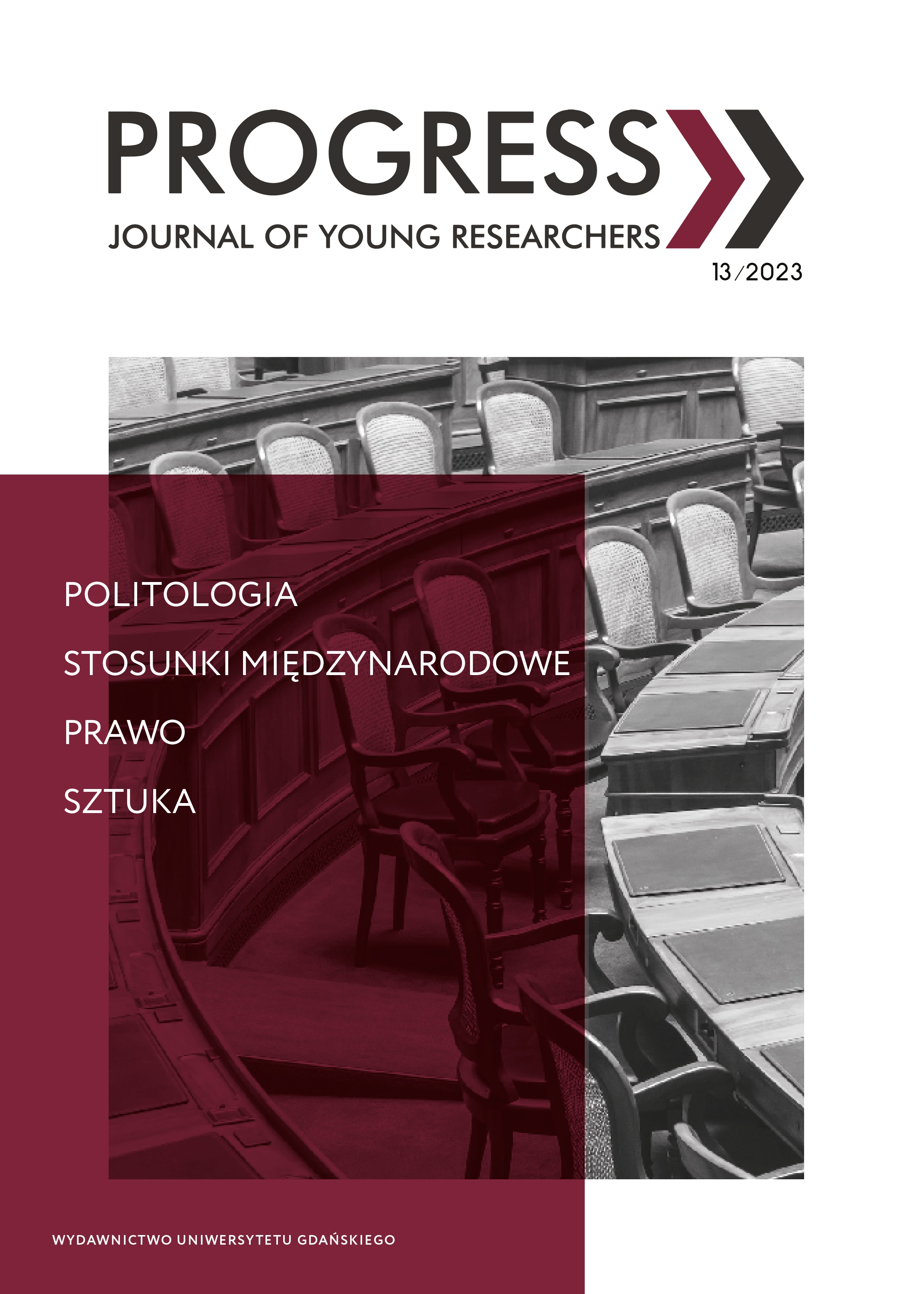Pedophilia – between illusion and truth
DOI:
https://doi.org/10.26881/prog.2023.13.08Keywords:
pedophilia, media, attitudesAbstract
The purpose of the study is to find out the knowledge about the problem of pedophilia, the main sources of information and social attitudes towards people convicted of the crime of pedophilia. An online survey method was used, and the recruitment of respondents was done through social media. The tool used in the study was a self-designed questionnaire. The questionnaire is a tool used to analyze the level of knowledge about the problem of pedophilia, to determine the main sources of information about the crime of pedophilia, and to determine the presented social attitude towards people convicted of the crime of pedophilia. The survey was conducted among 164 people. The data obtained indicate that the main sources of information on the problem of pedophilia are traditional and social media. Unambiguously determining the level of knowledge of respondents about the problem of pedophilia is problematic. A significant percentage of respondents declare a condemnatory attitude toward people convicted of the crime of pedophilia.
Downloads
References
American Psychiatric Association, Kryteria diagnostyczne z DSM-5. Desk Reference, Wrocław 2015.
Beisert M., 2017, Pedofilia. Geneza i mechanizm zaburzenia, Sopot. CBOS, 2004, „Fakt”, 22.03.2004.
Dworas-Kulik J., 2015, Prawnokarne aspekty pedofilii. „Kwartalnik Prawo-Społeczeństwo-Ekonomia”, nr 1.
Kapała A., 2019, Różnorodność wariantów diagnozy pedofilii w opiniowaniu sądowo- seksuologicznym. „Nowa Kodyfikacja Prawa Karnego”, t. LIII, nr 3953.
Kowalczyk M.H., 2014, Przestępcy seksualni. Zabójcy, gwałciciele pedofile i ich resocjalizacja, Toruń.
Lewandowska K., 2007, Społeczny wizerunek sprawców przestępstw seksualnych wobec dzieci, „Dziecko Krzywdzone”, nr 4.
Mądrzycki T., 1977, Psychologiczne prawidłowości kształtowania się postaw, Warszawa.
Marcinek P., Kapała A., 2012, Pedofilia w opiniowaniu sądowo-seksuologicznym. „Seksuologia Polska”, t. X, nr 2.
Międzynarodowa statystyczna klasyfikacja chorób i problemów zdrowotnych. Klasyfikacja zaburzeń psychicznych i zaburzeń zachowania w ICD-10. Badawcze kryteria diagnostyczne, Kraków–Warszawa 1998.
Mika S., 1984, Psychologia społeczna, Warszawa.
Pospiszyl K., 2005, Przestępstwa seksualne, Warszawa.
Pużyński S., Wciórka J., 2000, Klasyfikacja zaburzeń psychicznych i zaburzeń zachowania w ICD-10.
Opisy kliniczne i wskazówki diagnostyczne, Kraków.
Sajkowska M., 2002, Wykorzystywanie seksualne dzieci. Ustalenia terminologiczne, skala zjawiska, oblicza problemu społecznego. „Dziecko Krzywdzone”, t. 1, nr 1.
Sajkowska M., Szymańczak J., 2009, Dzieci – ofiary przemocy. Skala i charakter zjawiska. Potrzeba interwencji, „Polityka Społeczna”, nr 9.
Skowroński D., 2003, Preferencje seksualne Polaków, Poznań.
Smallbone S.W., Marshall W.L., Wortley R., 2008, Preventing Child Sexual Abuse: Evidence, Policy And Practice, Devon.
Wojciszke B., 2004, Postawy i ich zmiana, w: J. Strelau (red.), Psychologia, podręcznik akademicki, t. 3: Jednostka w społeczeństwie i elementy psychologii stosowanej, Gdańsk.
Wurtele S.K., 2009, Preventing sexual abuse of children in the twenty-first century: Preparing for challenges and opportunities, „Journal of Child Sexual Abuse”, No. 18.
Zimbardo P.G., Leippe M.R., 2004, Psychologia zmiany postaw i wpływu społecznego, Poznań.
Downloads
Published
How to Cite
Issue
Section
License
Copyright (c) 2023 Author(s)

This work is licensed under a Creative Commons Attribution 4.0 International License.

 Academic Scientific Journals
Academic Scientific Journals




